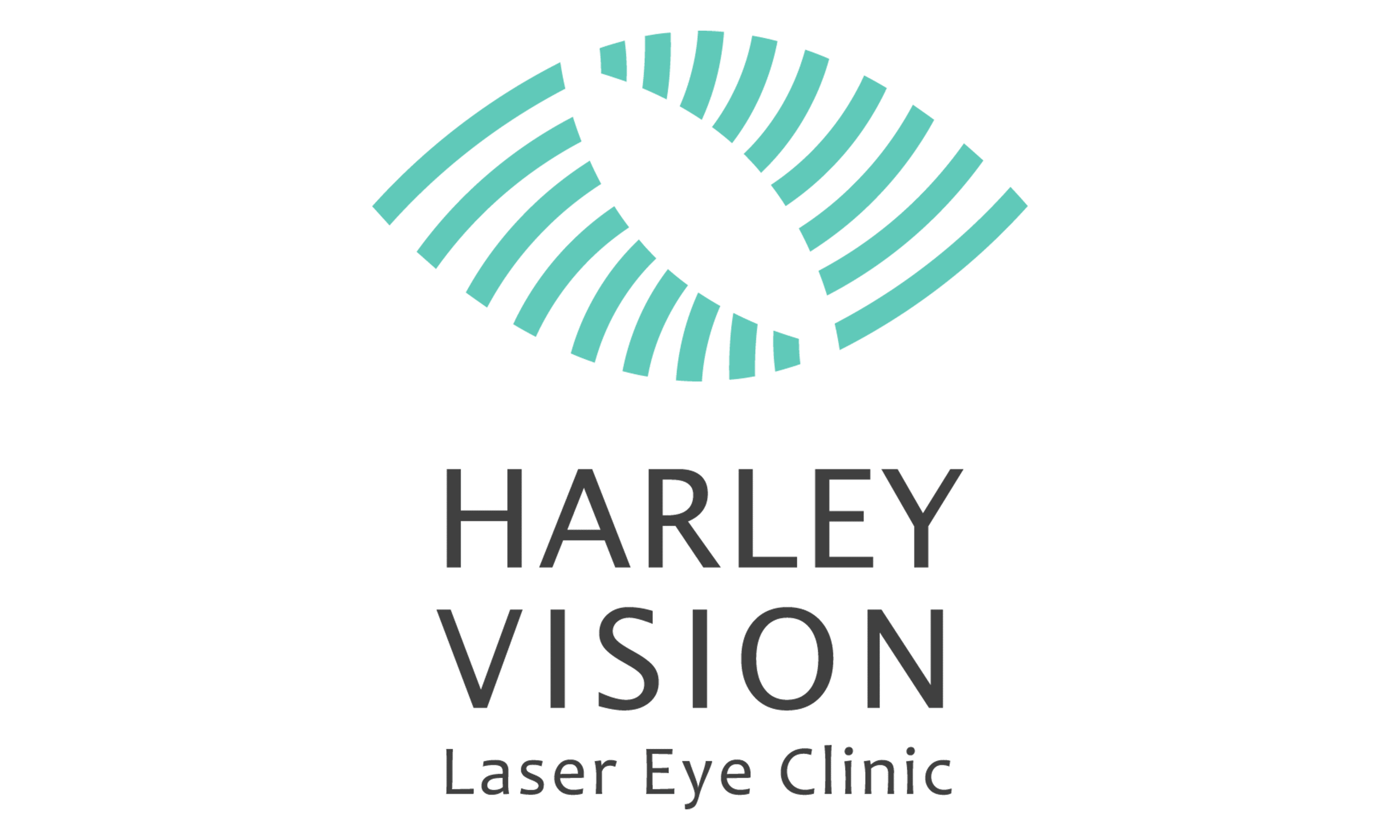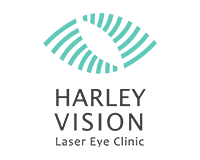Laser Eye Surgery on Harley St.
From £1,199 per eye.
Laser eye surgery corrects poor vision, giving you freedom from your glasses and contact lenses, so you can live your life to the fullest.
So, worry no longer, and come to Harley Vision! Leverage our decade-long expertise in using laser for eye surgery and improve your vision.
Harley Vision
Mr Mukhtar Bizrah
Harley Vision
Mr Mukhtar Bizrah
What Is Laser Eye Surgery?
Laser eye surgery can help you see better, so you don’t have to wear glasses or contact lenses anymore. This lets you live your life to the best.
It’s a very easy process that can take anywhere from a few seconds to a few minutes, based on how much editing needs to be done. It can fix both short- and long-sightedness, as well as astigmatism.
A cool beam advanced laser makes small changes to the shape of the surface of your eye (the cornea) to smooth out tiny flaws and improve your vision. Patients are surprised by how quickly they get better and how soon they can live without glasses or contact lenses.
With Harley Vision, you can rest assured that our laser eye surgery will come with a wide range of benefits, including:
- Laser eye surgeries eliminate dependencies on glasses and contact lenses for years to come, making your life stress-free.
- With advanced laser surgeries, vision can be improved significantly, almost to a range of 20/20.
- Since we use numbing eye drops, the procedure will be painless for every patient.
- We use laser for vision correction so that our patients can recover faster and get back to their daily life.
- The results of laser surgeries are permanent and won’t wear off in a few years.
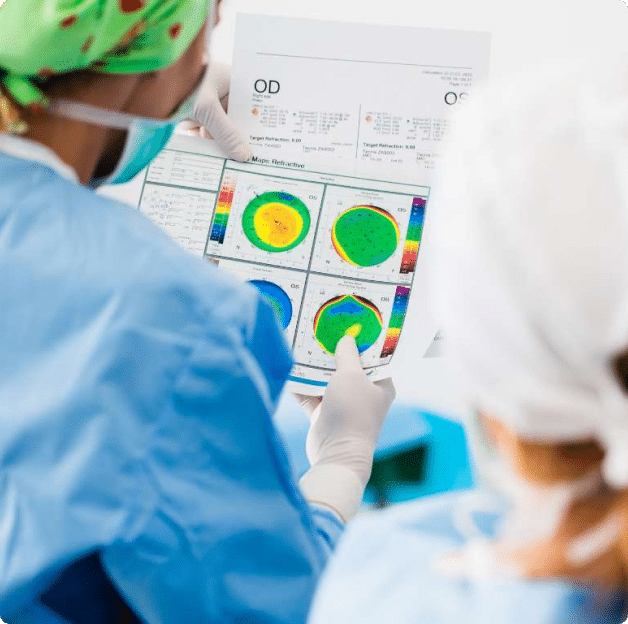
Am I Suitable For Laser Eye Surgery?
As 85% of people who come to Harley Vision for a consultation are suitable for a procedure, it’s very likely that you will be too. Why not try using one of our suitability tools to get a quick initial indication?
We Use World Class Technology
Our expert surgeons use the same technology that led NASA to approve laser eye surgery for its astronauts. We use advanced femtosecond and excimer lasers, which are incredibly precise and accurate so that we can provide our patients with their very best results.
Is There More Than One Type Of Laser Eye Surgery?
Yes, LASIK and LASEK (also called PRK) are the two most common and well-known types of laser eye surgery.
LASIK
LASIK is our most popular type of laser eye surgery and offers benefits including a fast recovery and excellent visual outcomes.
LASEK
LASEK is an alternative treatment to LASIK and is effective for some of those patients who aren’t suitable for LASIK surgery.
CATARACT
Don’t put up with discomfort any longer; call us now to take advantage of our expertise in treating severe corneal disorders and cataracts.
How Is Laser Eye Surgery Performed?

Step 1
The procedure begins with anaesthetic eye drops being applied, which quickly numbs the eye.

Step 2
The laser works in a matter of seconds, sending pulses of laser beams onto your cornea to reshape any imperfections.

Step 3
Most patients experience improved vision within a few days, though full recovery can take up to a week.
Clinical Director
Mukhtar Bizrah is the Clinical Director of Harley Vision. He is a consultant refractive, cornea and cataract surgeon and unit training lead at the Western eye hospital, Imperial College Healthcare NHS Trust.
Mr Bizrah is multi-fellowship trained (UK & Canada) in advanced refractive, cataract and cornea surgery. He is one of the few ophthalmic surgeons in the world who is board certified in the UK, Canada and Europe:
- Fellow of the Royal College of Ophthalmologists (FRCOphth), UK
- Fellow of the Royal College of Physicians and Surgeons of Canada (FRCSC), Canada
- Fellow of the European Board of Ophthalmology (FEBO), Europe
- Fellow of the World College of Refractive Surgery (FWCRS)
- Certificate in Laser & Refractive surgery (CertLRS), Royal College of Ophthalmologists, UK
Mukhtar Bizrah is one of the few laser eye surgeons in the world who has experience in treating patients using three of the world’s fastest and more precise laser technologies: Schwind eye-tech-solutions laser technology, iDesign laser technology and Zeiss Visumax/MEL90 lasers.
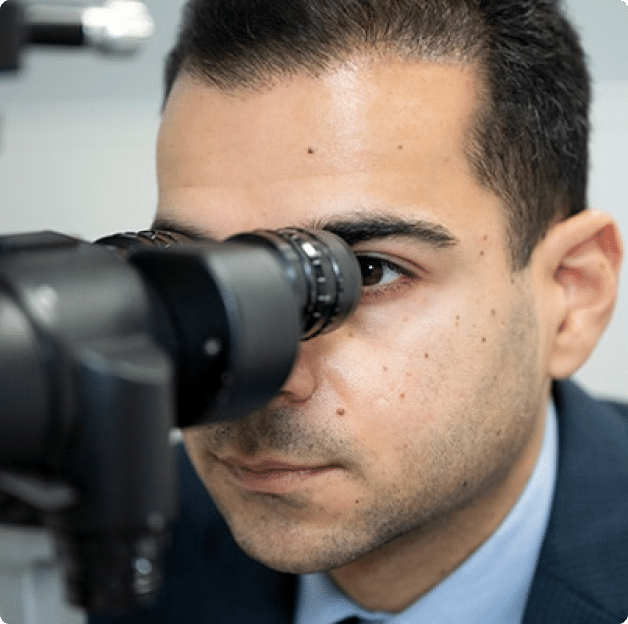
10 Reasons for Harley vision for Laser Eye Surgery Treatment
01
Multi-award winning, multi-fellowship trained surgeon
02
At our clinic, you will be seen by a consultant from the start, not the day of surgery
03
Not tied to any company, we choose the best laser or implants for your eyes
04
State-of-the-art technology, lasers and multifocal lens implants
05
Our surgeons offer laser and lens based refractive surgeries, not pressuring you to a specific treatment
06
Honest ethical care: We do not falsely promise 20/20 vision
07
Utilising AI for best possible care
08
Believers in education, running ophthalmology courses attended from various continents
09
Believers in evidence-based care, our surgeons have numerous research studies
10
Believers in vision for all, donating …
7 Reasons To Choose The Harley Vision Clinic

Highly Specialist Care
AI is utilised where possible to complement highly specialist care

State-of-the-Art diagnostic device
State-of-the-Art diagnostic devices to ensure the assessment is as accurate and comprehensive as possible

Highly Advanced
Highly advanced new technology to deliver world class treatments, without compromising to cut costs

Ophthalmology textbook author
Principal Eye Surgeon is an author on leading research papers and an ophthalmology textbook author & pioneer

Award Wining Consultant Ophthalmologists
Who regularly deal with complex cornea and cataract conditions at the Western Eye Hospital, Imperial College Hospitals NHS Trust

Highest board of certification
Our London eye surgeons have highest board of certification for ophthalmology in the UK (FRCOphth), Canada (FRCSC) and Europe (FEBO)

Consultant led clinic
Clinic led by a consultant eye surgeon who is multi-fellowship trained in world renowned eye hospitals in the UK & North America
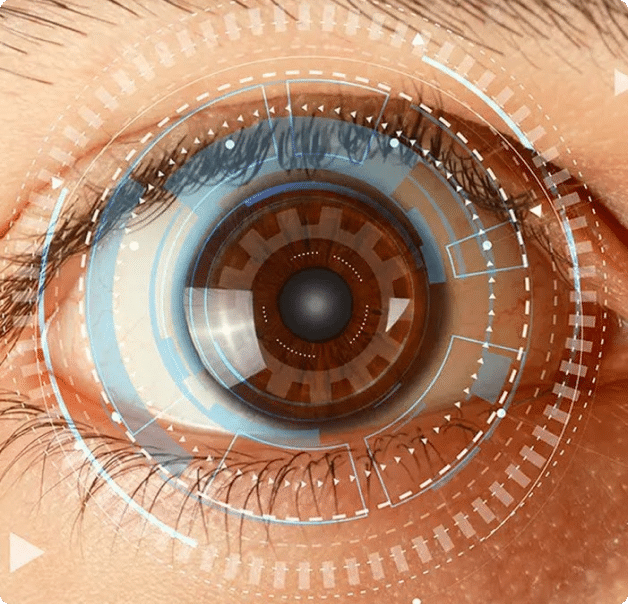
How Much Does Laser Eye Surgery Cost?
The eyes of each person are different, and so is their Lasik eye surgery. First, we need to meet with you for a consultation so that we can figure out what your treatment needs are.
In the last few years, improvements in technology have made this truly amazing change in vision possible for almost everyone who is suitable for treatment.
It’s also important to remember that correcting your vision could save you money in the long run because you won’t have to keep buying glasses or contact lenses.
How do we determine the overall costs for the laser eye surgery?
Assessing the right amount for vision laser surgery allows us to offer peace of mind to our patients and ensure their investments will never go down the drain. To do so, our experts utilize a detailed checklist, having cost evaluation factors like:
- Treatment Type: LASIK surgeries are cheaper when compared to the advanced treatments we offer, like the photorefractive keratectomy or any custom procedure for laser in eye treatment. We will start with analyzing your vision and the underlying conditions of the eyes to decide the most feasible treatment process.
- Surgeon’s Experience: At Harley Vision, we have experienced ophthalmic surgeons who bring the goodness of decades of medical expertise and deep domain knowledge. That’s why our packages also take their experience and knowledge into consideration.
- Technology Used: We always use the most advanced and latest technologies to increase the success rates of our eye laser vision correction procedures. This also becomes a primary cost evaluation factor for our laser treatment packages.
From
£1,199 / per eye
Aftercare & Recovery
Our full aftercare plan begins on the day of your Lasik eye surgery and is tailored to your specific needs. We keep an eye on your progress to make sure that your healing is going as it should.
All of our patients can also call our after-hours medical service, where an expert optometrist or surgeon can answer any questions about your vision or eye health after laser eye surgery.
We ensure all your needs are attended to after the eye operation laser so that you can recover faster and return to your daily activities with no further complications. Our surgeons will follow up with you to check the progress of the healing process and analyze any post-operative complications, like internal bleeding or blurred vision. We use advanced technologies and equipment units to correctly judge the success rate of the laser eye treatment and accordingly take necessary actions.
- Our eye and laser surgeons will provide you with goggles and protective shields so that your eyes remain protected against accidental rubbing or scratching.
- You will have to use medicated eye drops to prevent inflammations and reduce the risks of infections post the eye operation by laser.
- Our experts will explain all the do’s and don’t’s for you so that you can follow the instructions properly once you are discharged. This will speed up your recovery rate and help the eyes to heal faster.
- If your vision is not restored after the first week of the surgery, you can come to our surgeons with your concerns. They will check the surgical site and analyze if the vision is restrained due to any infection or inflammation.
At Harley Vision, our laser eye surgeons pay special attention to the aftercare provided to every patient so that the recovery speed can be enhanced by several notches. Thanks to our comprehensive holistic patient care, we can guarantee that your vision and eye health are in good and credible hands!
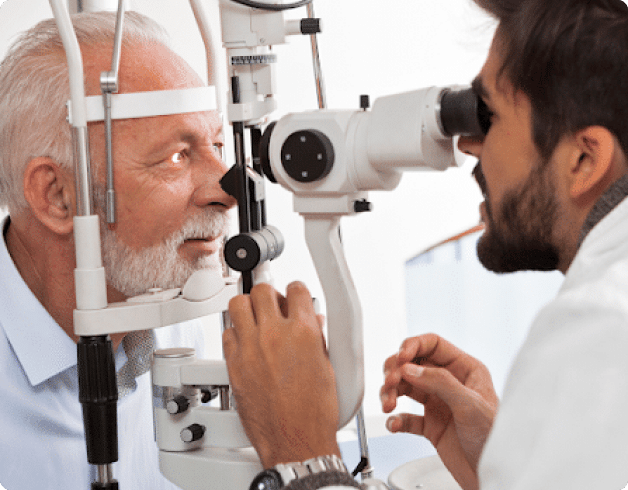
50 million people
Around the world, more than 50 million people have had laser eye surgery. At Harley Vision all consultations are done by our award winning eye doctors and surgeons completely free of charge because your Vision is Our Mission. UK laser eye surgery has a very good safety record and at Harley Vision our eye surgeons have some of the lowest complication rates in the world.
Why Choose Us?
Around the world, more than 50 million people have had laser eye surgery. At Harley Vision all consultations are done by our award winning eye doctors and surgeons completely free of charge because your Vision is Our Mission. UK laser eye surgery has a very good safety record and at Harley Vision our eye surgeons have some of the lowest complication rates in the world.
Experience Clear Vision: Laser Eye Surgery Near Me
If that’s so, Harley Vision is your one-stop destination in the UK! With experienced surgeons on the board and state-of-the-art infrastructure, our laser eye clinic promises you an ethereal experience of visualizing the world around you without any glasses or contact lenses. Contact our experts now to get your eyes analyzed and determine the best treatment plan with laser technology.
Say Goodbye to Glasses & Contacts
Explore Your Options: Laser Eye Treatment Near Me
LASIK
PRK
SMILE
Choosing The Best Clinic: Laser Eye Surgery Near Me
With countless options in hand, finding the best clinic for laser eye surgery near me can be cumbersome and extremely overwhelming. As we are talking about your vision and eye health, no compromise should be entertained.
Experience Matters
Technology And Safety
The Surgical Experience: Laser Eye Surgery Near Me
Before Surgery
During Surgery
After Surgery
Schedule A Consultation: Laser Eye Surgery Near Me
Take The First Step Towards Clear Vision
Planning To Receive Laser Eye Surgery Near Me?
Harley Vision is your one-stop destination for advanced laser treatments and excellent post-operative aftercare. We promise you a faster recovery rate and painless eye surgery for vision correction. It’s time to let go of the irritating glasses and contact lenses with our stellar laser vision correction near me.
Contact us today to schedule an appointment and get your eyes evaluated before our expert surgeons can prepare a tailored treatment plan for you.
Memberships & Accreditations
Frequent asked questions(FAQs)
Spreading the cost of your treatment with our 0% finance options.
We are pleased to provide our patients with affordable and flexible finance options. Novuna personal finance enables you to take advantage of the treatments and procedures that we offer.

Useful Links
Locations
Harley Vision,
Harley Vision,
Harley Vision,
Harley Vision,
Contact Us
Lines open: Mon to Sun 9am – 9pm
Out of hours service available for urgent cases
© 2022 Harley Vision, All Rights Reserved.
Harley Vision,
Harley Vision, Imperial Western Eye Hospital,
Harley Vision, King Edwards Hospital,
Harley Vision,
Harley Vision, St John & St Elizabeth Hospital
Harley Vision, Tunbridge wells eye centre, surgery in The Sight Centre,
Harley Vision, The McIndoe Centre,
Harley Vision, Spire Gatwick Park Hospital,
Lines open: Mon to Sun 9am – 9pm
Out of hours service available for urgent cases
© 2023 Harley Vision, All Rights Reserved.
Harley Vision,
Imperial College Private, Charing Cross Hospital, Fulham Palace Road, London W6 8RF
